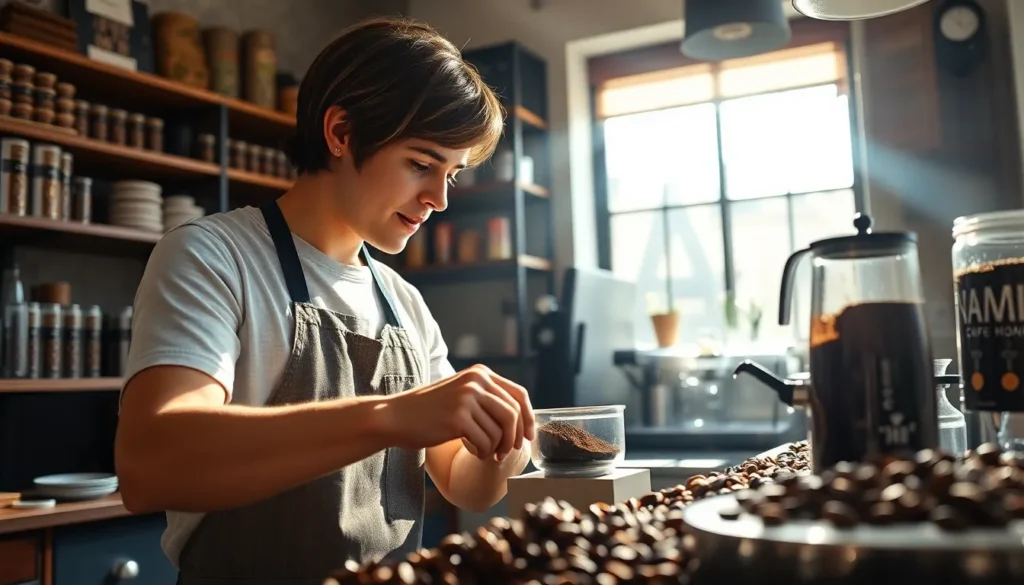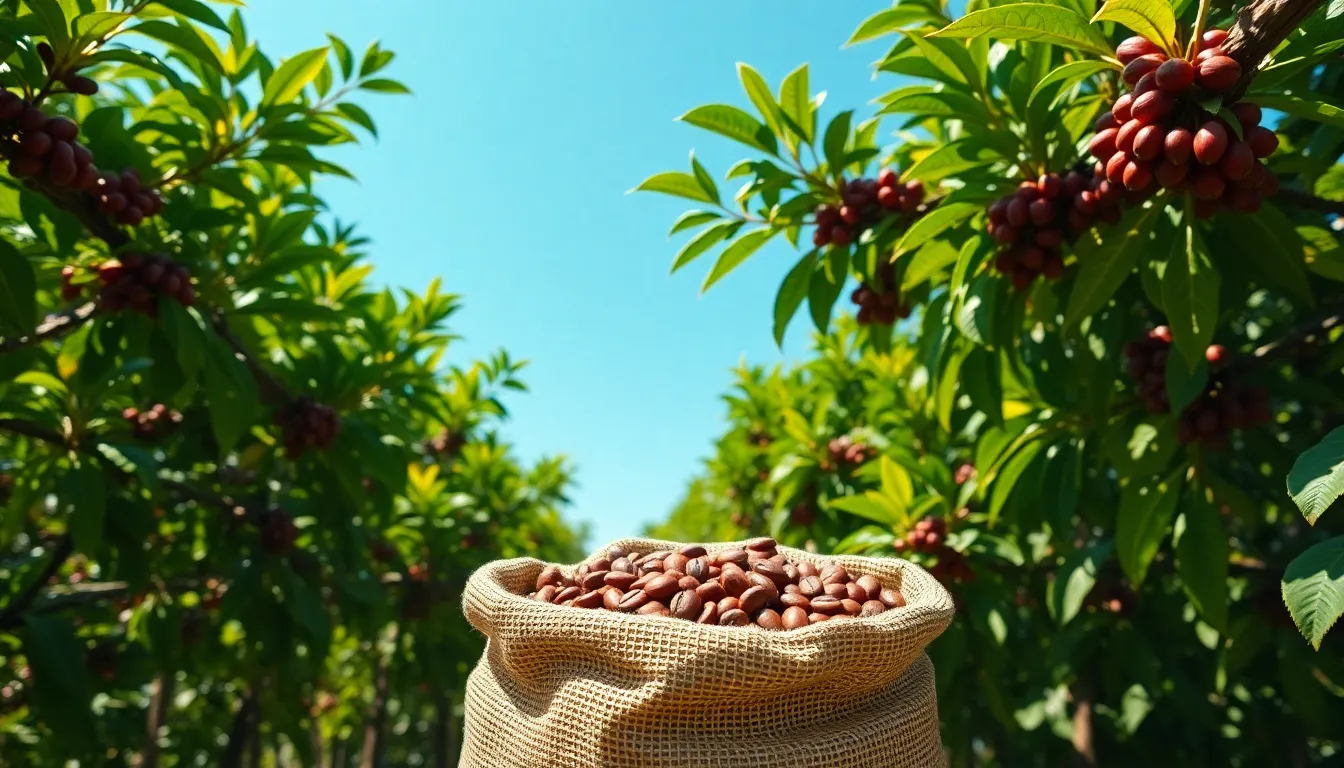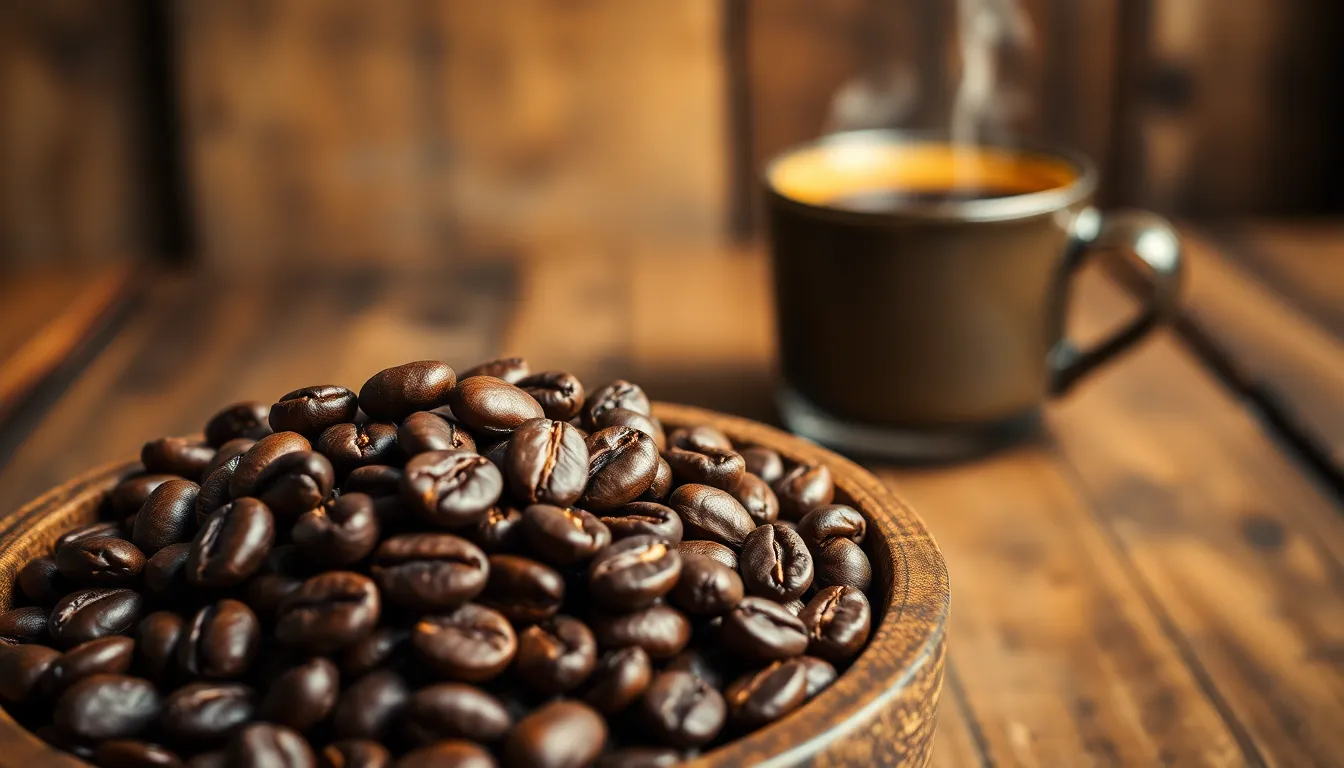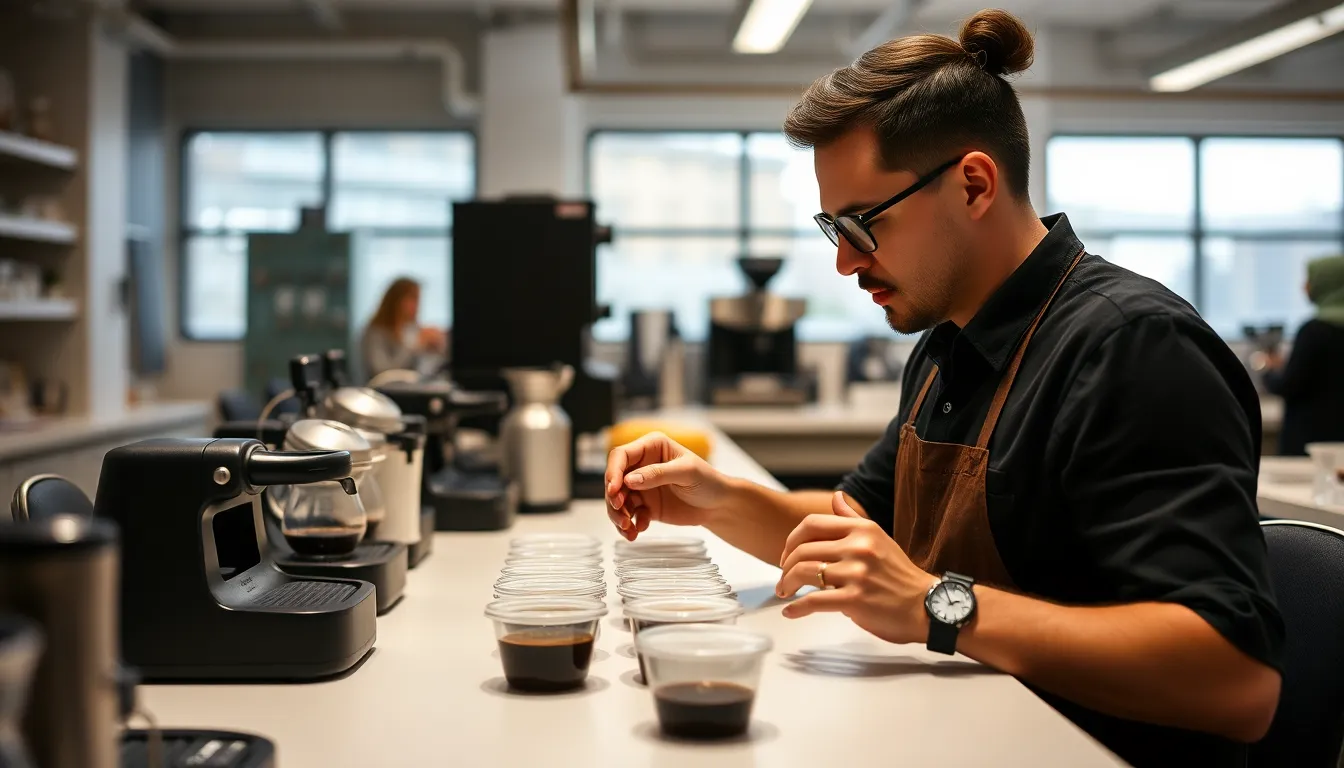
Artisanal Rituals for a Memorable Customer Experience
How can brands create a more balanced and memorable customer experience by blending artisanal product quality with thoughtful everyday rituals that keep people coming back?

For coffee enthusiasts who value quality and craftsmanship, understanding what makes coffee specialty grade is essential. Specialty coffee isn’t just a beverage; it’s a ritual that transforms the morning routine into a moment of enjoyment. With a focus on exceptional flavor profiles and sustainable sourcing, specialty coffee appeals to those who seek a smoother, less bitter cup without the need for additives like cream or sugar.
This coffee category is defined by strict standards, including meticulous cultivation and processing methods that ensure transparency and consistency. Specialty grade coffee often comes from small-batch roasters dedicated to ethical practices, allowing consumers to support independent brands while indulging in a truly extraordinary coffee experience. Discovering what makes coffee specialty grade can elevate every sip, turning a simple cup of joe into a celebration of craftsmanship and flavor.
Specialty grade coffee represents the pinnacle of coffee quality, focusing on meticulous cultivation and processing. These coveted beans deliver distinctive flavors and aromas, enhancing the overall coffee experience.
Specialty coffee encompasses high-quality beans that score at least 80 points on a 100-point scale, as evaluated by certified judges. Such coffee reflects unique flavor profiles tied to specific origins. For example, Equipoise Coffee offers blends like Mexican La Laja Honey and Ethiopian Yirgacheffe that highlight the unique characteristics of their respective regions. The emphasis on small-batch roasting ensures each cup retains the integrity of the beans, resulting in a consistently rich taste.
The Specialty Coffee Association (SCA) establishes rigorous standards that define specialty coffee. These criteria include specific practices in harvesting, processing, and grading. Equipoise Coffee adheres strictly to these standards, ensuring that blends like Cavaliers Blend and Colombian Supremo meet the highest expectations. Small-batch roasters, such as Equipoise, focus on quality over quantity, fostering a transparent supply chain that supports independent brands while allowing consumers to enjoy premium coffee experiences.

Specialty grade coffee embodies a commitment to quality, showcasing distinct characteristics shaped by various factors.
Origin plays a crucial role in defining specialty coffee. Unique climates, altitudes, and soil types contribute to the flavor profiles of beans. For example, Mexican La Laja Honey beans offer sweet, honey-like notes, while Ethiopian Yirgacheffe is known for its floral aroma and vibrant acidity. These terroir influences reflect the local environment, impacting the overall sensory experience. High-quality beans from reputable sources ensure a remarkable flavor journey that stands out in the cup.
Processing methods significantly affect the taste and quality of coffee. Techniques such as washed, natural, or honey processing each impart different flavors. Washed coffees typically present cleaner profiles, while natural processing can enhance fruity notes. Equipoise Coffee embraces meticulous processing to maintain integrity. The careful handling of beans from sources like Colombian Supremo leads to balanced and complex flavors, appealing to coffee enthusiasts seeking a superior experience.
The variety and genetics of coffee beans heavily influence specialty grade classification. Arabica beans, renowned for their superior quality, generally yield better flavor complexity than Robusta beans. Specific cultivars, such as those used in the Cavaliers Blend, showcase traits unique to their genetic background. Focusing on these high-quality beans, Equipoise Coffee ensures that each blend delivers an exceptional taste, representing the best of what specialty coffee can offer.

Specialty coffee boasts distinct sensory attributes that elevate its enjoyment. From flavor to aroma, each element contributes to a superior experience.
Flavor complexity in specialty coffee results from the careful selection of high-quality beans and meticulous roasting techniques. Each blend, including the Mexican La Laja Honey and Colombian Supremo, reveals rich, layered notes that define its origin. For instance, the Ethiopian Yirgacheffe showcases bright fruitiness, while the Cavaliers Blend presents a harmonious balance of chocolate and nuttiness. Equipoise Coffee’s commitment to achieving this complexity is evident in every cup.
The aroma of specialty coffee captivates the senses, enticing coffee lovers with its intricate bouquet. Freshly roasted beans from Equipoise Coffee release enticing fragrances, reflecting their unique characteristics. The distinct scents of the Mexican Oaxaca hint at floral and citrus notes, while the Ethiopian Yirgacheffe bursts with sweet and fruity aromas. This sensory appeal enhances the overall experience, drawing one into the world of exceptional coffee.
Body and acidity play critical roles in the enjoyment of specialty coffee. The balance between these elements creates a satisfying mouthfeel and overall flavor experience. For example, the Mexican La Laja Honey offers a silky body, while the Colombian Supremo presents a bright acidity that invigorates the palate. Equipoise Coffee ensures that each cup delivers a pleasing experience by focusing on small-batch roasting methods that highlight the coffee’s natural attributes.

Cupping serves as a vital practice in evaluating specialty coffee, allowing coffee professionals to assess flavor, aroma, and quality.
Cupping standards define how coffee is evaluated, ensuring consistency in assessments. Specialty coffee undergoes rigorous cupping processes, including aroma evaluation and taste testing. Experienced tasters assess aspects such as acidity, balance, and overall flavor complexity. Each cup must reveal distinct attributes, with high-quality beans like Mexican La Laja Honey and Colombian Supremo showcasing their unique profiles. Equipoise Coffee adheres to these cupping standards, guaranteeing that each blend reflects its commitment to quality and equilibrium.
Evaluating quality involves detailed scoring based on specific criteria, often guided by the Specialty Coffee Association. Cupping enables professionals to identify flavors ranging from fruity to floral, helping differentiate between grades. Tasting notes drawn from blends like Ethiopian Yirgacheffe and Mexican Oaxaca illustrate the distinct origins of each bean. By employing intentional cupping techniques, Equipoise Coffee emphasizes the importance of craftsmanship, ensuring that every cup delivers a balanced experience that coffee lovers appreciate.
Specialty grade coffee represents the pinnacle of quality and craftsmanship in the coffee world. It’s a celebration of unique flavors and sustainable practices that elevate the coffee-drinking experience. By adhering to strict standards set by the Specialty Coffee Association, roasters ensure that each cup reflects the rich diversity of its origin.
With a focus on meticulous processing and careful selection of high-quality beans, specialty coffee offers a sensory journey that captivates enthusiasts. The commitment to excellence not only supports independent brands but also fosters a deeper appreciation for the artistry behind every blend. Embracing specialty coffee means savoring the complexity and richness that comes from dedicated cultivation and expert roasting.
Specialty grade coffee refers to high-quality coffee beans that score at least 80 points on a 100-point scale established by the Specialty Coffee Association. This grade signifies careful cultivation, processing, and unique flavor profiles tied to their region of origin.
Specialty coffee enhances the morning experience by offering exceptional flavors and aromas. It is viewed as a ritual that celebrates quality and craftsmanship, allowing coffee enthusiasts to appreciate the nuances of each cup.
The origin of coffee beans plays a crucial role in shaping their flavor profiles. Factors like climate, altitude, and soil type contribute to unique tastes, making each region’s coffee distinct. For example, Mexican and Ethiopian coffees have unique characteristics tied to their origins.
Common processing methods, like washed and natural, significantly impact the taste of coffee. These methods affect how sugars and acids are preserved, influencing flavor complexity. Carefully selected techniques help maintain the integrity of specialty beans.
Cupping is a professional evaluation method used to assess coffee’s flavor, aroma, and quality. It involves a series of standardized processes, including tasting and aroma analysis, helping tasters gauge aspects like acidity and balance to ensure high-quality coffee.
Equipoise Coffee focuses on small-batch roasting and employs meticulous techniques to ensure each blend meets high standards. Their commitment to quality ensures that each blend showcases the best characteristics of specialty coffee, providing an enjoyable experience for consumers.

How can brands create a more balanced and memorable customer experience by blending artisanal product quality with thoughtful everyday rituals that keep people coming back?

Independent coffee shops have always been about more than caffeine—they’re hubs of creativity, connection, and care. As café culture continues to evolve, new trends are

Introduction Independent cafes win when they feel like the neighborhood’s living room and operate with the discipline of a great kitchen. Below is a quick

Discover how top specialty coffee brands create lasting loyalty through storytelling, sourcing, and community connection. Real tips from 6 industry experts.

Discover the ultimate showdown between two beloved coffee brewing methods: the French press and Chemex. Explore how each technique caters to distinct palates, with the French press delivering bold flavors and the Chemex presenting a bright, clean taste.

Unlock the secrets to brewing the perfect cup of coffee with our comprehensive guide on using a coffee scale. Discover how precise measurements enhance flavor and consistency while eliminating bitterness.

Discover how water temperature plays a vital role in brewing the perfect cup of coffee. This article delves into the ideal temperature range of 195°F to 205°F for optimal flavor extraction, enhancing the enjoyment of high-quality beans.

Discover the world of curated specialty coffee bundles, perfect for enthusiasts seeking quality and craftsmanship. This article explores the benefits of ethically sourced, small-batch beans from brands like Equipoise Coffee, offering diverse flavor profiles that elevate your brewing experience.

Discover the art of manual brewing to elevate your coffee experience! This article explores various techniques like pour-over, French press, and AeroPress, revealing how they enhance flavor and your connection to every cup.